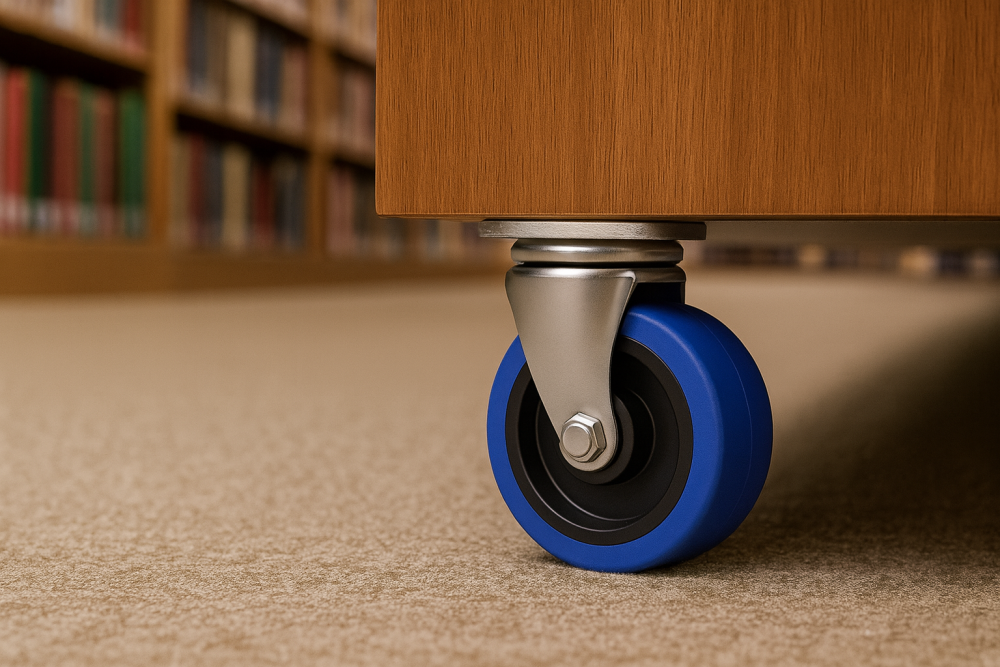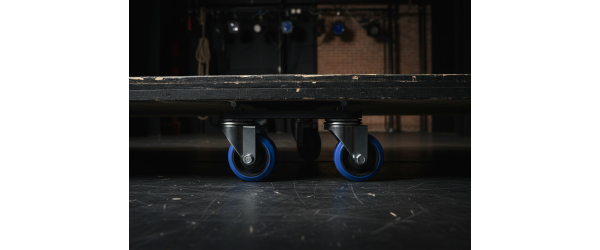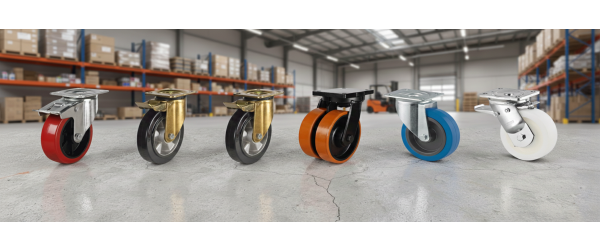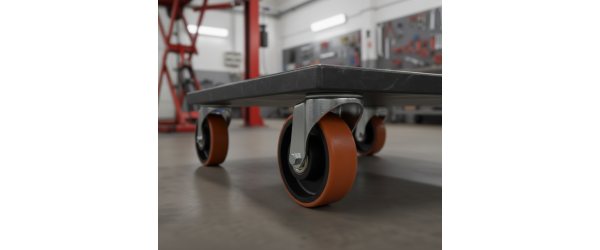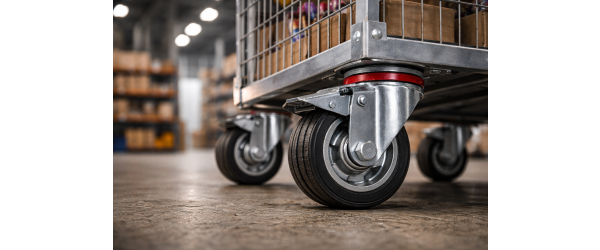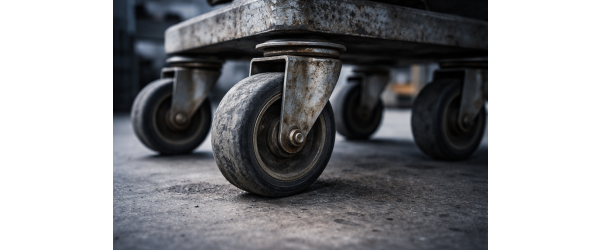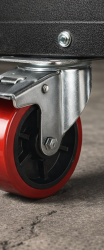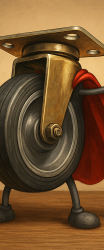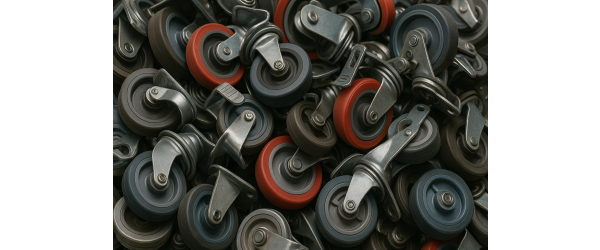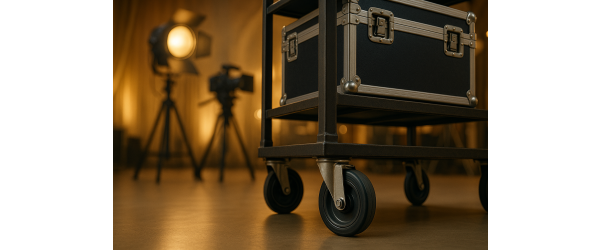When it comes to mobility solutions in sensitive environments, noise can be just as much of a concern as load capacity or durability. Whether in hospitals, offices, libraries, or residential buildings, the clatter of hard wheels against flooring is more than a minor irritation - it can be a major distraction or even a barrier to effective work.
The good news is that modern castor technology offers a range of ways to minimise noise without compromising performance. This blog explores how the right castor choice, coupled with smart usage techniques, can make a significant difference in creating quiet and comfortable spaces.
Why Noise Matters
In certain environments, excessive noise is more than an inconvenience - it can disrupt concentration, compromise patient recovery, or reduce the sense of comfort in a space. For example:
- Hospitals and care facilities: Quietness is vital for patient rest and recovery. Castors on trolleys, beds, or medical equipment must roll smoothly and silently.
- Offices and libraries: Persistent noise from chairs, cabinets, or mobile shelving can distract staff and students.
- Hospitality and retail: Customers often notice the noise of furniture or equipment being moved, which can detract from the overall experience.
In all of these settings, investing in quieter castors helps maintain a calm and professional atmosphere.
Materials Matter
The material of the wheel is the single most important factor in determining how much noise a castor generates.
- Rubber Castors
Rubber is naturally shock-absorbing and offers excellent noise reduction. It grips well on hard surfaces, making it ideal for environments where vibration and sound must be minimised. - Polyurethane Castors
Polyurethane combines strength with quiet running. It is softer than nylon or steel yet durable enough for heavier loads. Polyurethane is a popular choice for hospitals, schools, and offices where resilience and silence must go hand in hand. - Nylon or Metal Castors
While strong and suitable for heavy industrial environments, nylon or steel wheels tend to be noisier. Unless used with additional noise-reducing features, they are not recommended for environments where silence is critical.
Wheel Size and Floor Compatibility
Larger wheels generally run more quietly because they roll over obstacles rather than bumping against them. This smoother movement reduces both vibration and sound.
Flooring also plays a crucial role:
- Hard floors (wood, vinyl, tiles): Soft-tread wheels such as rubber or polyurethane are best.
- Carpeted floors: Harder wheels can still run quietly as the carpet dampens sound, but softer treads may improve manoeuvrability.
- Industrial floors: Where concrete or uneven surfaces are common, larger diameter wheels reduce the risk of clatter and prolong wheel life.
Matching wheel type to floor surface ensures both quiet operation and longer service life.
Bearings and Mountings
Noise often comes not from the wheel material itself, but from the way it is mounted and rotates. High-quality bearings reduce friction, allowing wheels to turn smoothly with minimal sound.
- Ball Bearings: Provide smooth and quiet movement, especially useful in swivel castors.
- Precision Bearings: Offer even quieter rolling with reduced vibration, suited for sensitive environments.
- Bushings:
While durable and cost-effective, bushings are often noisier than bearings.
Equally important is the mounting. Rigid frames may transfer more vibration into the floor, whereas swivel designs with well-engineered bearings can absorb movement and reduce noise.
Braking and Control Systems
Brakes are essential in many applications, but poorly designed systems can add unnecessary clatter. Choosing castors with integrated, silent-action brakes helps to keep movement controlled without disruptive clicking or grinding noises.
Some modern castors also feature directional locks that stabilise wheels for straight-line travel. These can reduce the scraping noises that occur when castors swivel unnecessarily.
Maintenance for Quieter Castors
Even the quietest castor will grow noisy over time without regular maintenance. Simple steps include:
- Lubrication:
Regularly oiling bearings reduces squeaks and rattles. - Inspection:
Checking for flat spots on wheels, which cause bumping noises. - Tightening Fixings: Loose bolts or fittings can amplify vibration and noise.
- Replacing Worn Parts: Bearings, tyres, and wheels wear down; timely replacement restores silent operation.
By building maintenance into a regular schedule, facilities can avoid the gradual rise in noise that often goes unnoticed until it becomes disruptive.
Product Recommendations
At Castors Online, we stock a wide selection of noise-reducing castors designed for demanding environments:
- Rubber-Tread Castors: Ideal for hospitals, offices, and libraries where silence is essential.
- Polyurethane Castors: A versatile option offering durability and quieter rolling across a wide range of settings.
- Precision Bearing Castors: Perfect for sensitive areas requiring ultra-smooth, silent movement.
These ranges combine performance with comfort, ensuring that essential mobility does not come at the cost of peace and quiet.
Conclusion
Noise reduction is often overlooked when specifying castors, but it has a direct impact on comfort, productivity, and professionalism. By paying attention to wheel material, size, bearings, and maintenance, it is possible to create quiet environments without sacrificing strength or mobility.
Whether you are fitting out a hospital ward, designing an open-plan office, or simply upgrading your workshop equipment, Castors-Online can provide the right solution for your needs.
Explore our range of noise-reducing castors today and discover how small changes can make a big difference.
